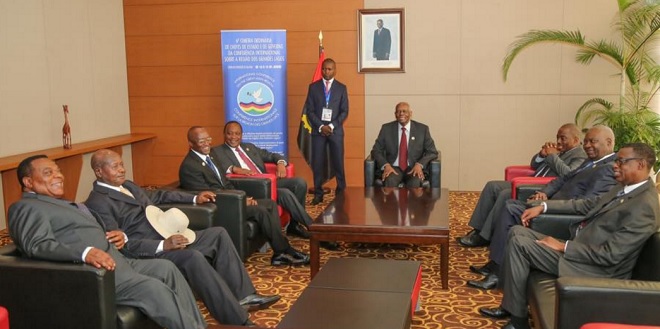
ANALYSIS: Long serving Angola President retires to a quiet sunset. Can it happen in Uganda?
Kampala, Uganda | RONALD MUSOKE | Renowned Ugandan political researcher and analyst Frederick Golooba Mutebi (PhD) says there is no guarantee of a smooth transition from long-serving President Yoweri Museveni as happened recently in Angola where President José Dos Santos quit after 38 years. But, Golooba says, a smooth transition is still possible in Uganda.
“Chances are high that Museveni will find himself exactly in the same position as dos Santos where he can designate a successor,” he says.
With dos Santos out, Museveni becomes the fourth longest serving president on the continent having been in power since 1986 when he shot his way into office. He has since civilianised his administration but still favours military fatigues in tough times, fetes his bush-war comrades with plum postings, and rarely misses shooting range practice with his Kalashnikov. Calls have been growing for Museveni to name a successor quickly, not least from his closest family, like son-in-law Odrek Rwabwogo, and advisors like the voluble John Nagenda.
Some local analysts, always on the lookout for ways to ensure that after Museveni there is a smooth transition of power in a country that has never seen a peaceful change of the president since independence, are this time focusing on Angola’s smooth transition.
According to Golooba, Museveni can easily appoint a successor who can easily be anointed by the ruling NRM party because he dominates it and it cannot oppose him.
“Museveni is not becoming any less influential or less dominant within the NRM and if the NRM continues to gain as much ground as it seems to be gaining now, it can choose a successor and it will still defeat the opposition and therefore we can have a smooth transition in Uganda.”
But not everybody is as optimistic as Golooba. Prof. Morris Ogenga Latigo, MP Agago North and former Leader of the Opposition in Parliament told The Independent on Sept.4 that the real lesson from Angola should be that each situation is different.
“Adhering to the Constitution and laws, building institutions and putting programmes that are not motivated by selfish political interest would ensure that countries would be on a firm foundation,” he said.
Latigo says the Ugandan situation could turn out different because of the diverse make up of its population compared to Angola which is comparatively less diverse.
These and others are part of a slew of opinion that has been aired since Angolans held an historic election on Aug.23 that marked the end of dos Santos long reign.
Although the change in Angola was peaceful and democratic, some political observers say the peaceful, multiparty election does not quite mark the end of an era in the southwestern African giant; rather it is the beginning of an uncertain transition period.
Dos Santos’s party, the People’s Movement for the Liberation of Angola (MPLA), which has been in power since 1975, retained power when Defence Minister, Joao Manuel Goncalves Lourenco, won the election after the MPLA took 61.1% of the votes counted compared with UNITA’s 26.7%.
Dos Santos who has been President of Angola since Sept. 20, 1979, was the second longest serving leader on the continent, behind Equatorial Guinea’s Teodoro Obiang Nguema.
Angola’s transfer of power has been several years in the making and was originally planned for next year but dos Santos’ ill health led the transition being brought forward.
Dos Santos, 75, has been in and out of hospital and observers of Angolan politics name ill-health as a factor in his decision to step down.
For decades, Angolans had speculated whom dos Santos and the Central executive committee of MPLA would choose as his successor. Besides the deputy president, Manuel Vicente, who has close ties to the dos Santos family, many had expected a member of the dos Santos dynasty to take over from dos Santos.
Top on the list was his son, Filomeno dos Santos, who heads the country’s $5 billion sovereign fund. The other potential candidate was his daughter, Isabel dos Santos, who runs Angola’s state owned oil company, Sonangol, and is said to be the richest African woman.
But it was Lourenco who took the mantle.
 The Independent Uganda: You get the Truth we Pay the Price
The Independent Uganda: You get the Truth we Pay the Price



